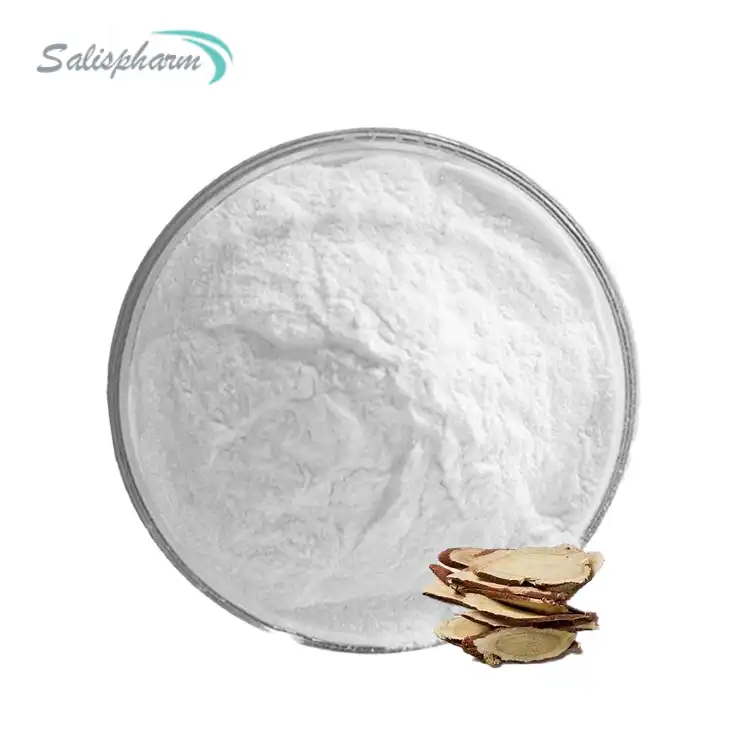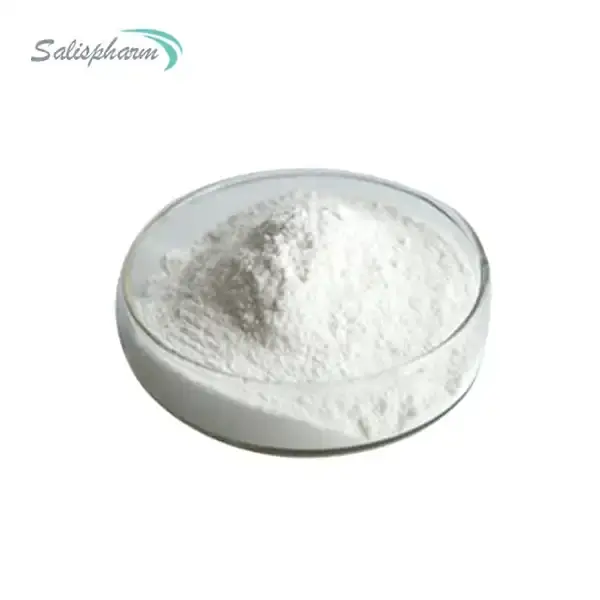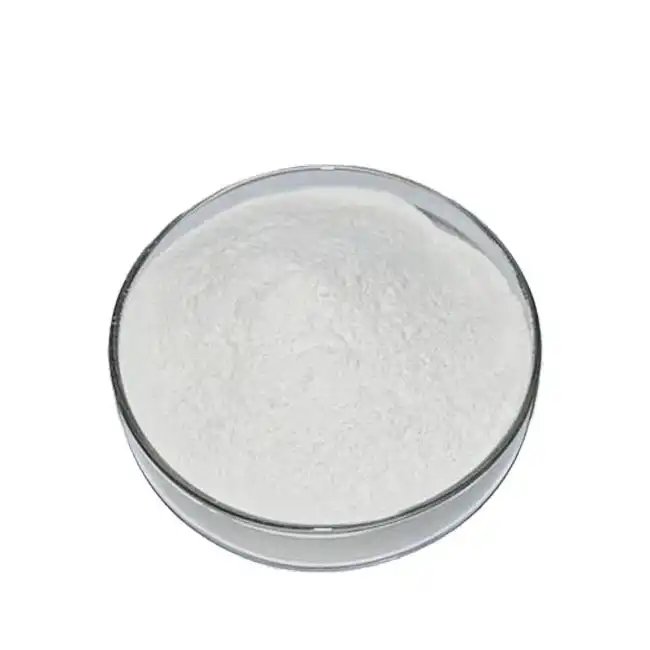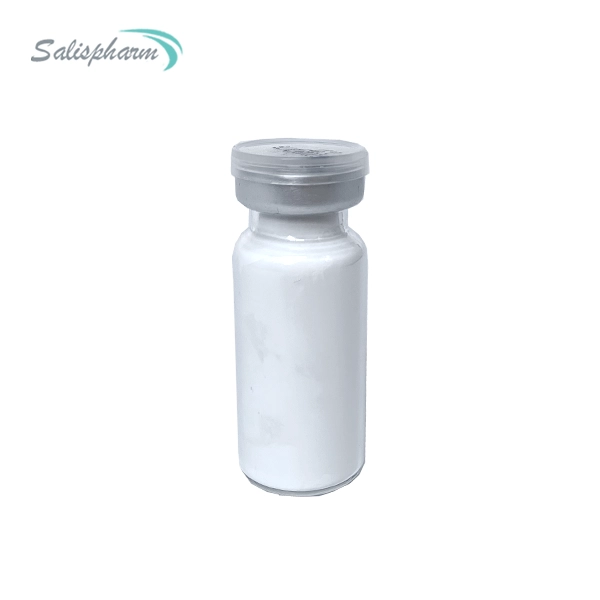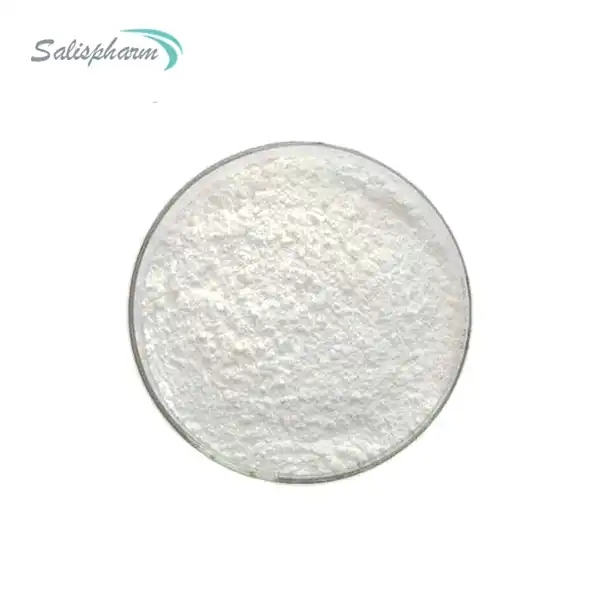Dextromethorphan powder, commonly known as DXM, is a widely used cough suppressant found in many over-the-counter medications. Its primary function is to alleviate coughing by acting on the cough center in the brain. While it's generally safe when used as directed, understanding proper dosage is crucial for both effectiveness and safety. Let's explore the various aspects of dextromethorphan dosage in detail.
How Much Dextromethorphan Powder is Recommended for Adults?
For adults, the dosage of dextromethorphan can vary depending on several factors, including the formulation of the medication, the severity of the cough, and individual health conditions. It's important to note that dextromethorphan comes in various forms, including immediate-release and extended-release formulations, each with its own dosing guidelines.
Immediate-release formulations are typically taken in doses of 10 to 20 mg every 4 hours, or 30 mg every 6 to 8 hours. The maximum recommended dose for adults is 120 mg in a 24-hour period. This dosage is designed to provide relief from cough symptoms while minimizing the risk of side effects.
Extended-release formulations, on the other hand, are usually taken as 60 mg every 12 hours. These formulations are designed to provide longer-lasting relief, reducing the frequency of doses required throughout the day. However, it's crucial to note that the maximum daily dose remains 120 mg, even for extended-release products.
It's essential to follow the label instructions carefully and not exceed the recommended doses. Taking more than the recommended amount of dextromethorphan can lead to serious side effects and potential toxicity. Some individuals may be more sensitive to the effects of dextromethorphan and may require lower doses. Factors such as body weight, overall health, and other medications being taken can all influence how an individual responds to dextromethorphan.
For those with persistent or severe coughs, it's advisable to consult with a healthcare provider before increasing the dose or frequency of dextromethorphan use. A healthcare professional can assess the underlying cause of the cough and determine if dextromethorphan is the most appropriate treatment option.
It's worth noting that while dextromethorphan is effective for suppressing coughs, it does not treat the underlying cause of the cough. If a cough persists for more than a week or is accompanied by other symptoms such as fever, chest pain, or difficulty breathing, medical attention should be sought.
What is the dextromethorphan Dosage for Children?
When it comes to children, the dosage of dextromethorphan powder is highly age-dependent. It's crucial to adhere strictly to age-appropriate dosing to ensure safety and efficacy. Here's a breakdown of the recommended dosages for different age groups:
For children aged 4 to 6 years:
- Immediate-release formulations are usually given in doses of 2.5 to 5 mg every 4 hours, or 7.5 mg every 6 to 8 hours.
- The maximum daily dose for this age group is 30 mg.
For children between 6 to 12 years:
- The recommended dose is 5 to 10 mg every 4 hours, or 15 mg every 6 to 8 hours.
- The maximum daily dose increases to 60 mg for this age group.
For children over 12 years:
- The dosage is similar to that of adults, with 10 to 20 mg every 4 hours or 30 mg every 6 to 8 hours.
- The maximum daily dose remains 120 mg, as with adults.
It's important to note that dextromethorphan is not recommended for children under 4 years of age. The risks of serious side effects in this age group outweigh the potential benefits. For infants and toddlers with persistent coughs, it's crucial to consult a pediatrician for appropriate treatment options.
When administering dextromethorphan to children, it's essential to use products specifically formulated for pediatric use. These products often come with appropriate measuring devices, such as dosing cups or syringes, to ensure accurate dosing. Parents and caregivers should never use adult formulations or attempt to adjust adult doses for children, as this can lead to dangerous overdosing.
It's also worth noting that the effectiveness of dextromethorphan in children has been a subject of debate in recent years. Some studies suggest that its benefits in children may be limited. As a result, many healthcare providers now recommend alternative methods for managing coughs in children, such as honey (for children over 1 year old), increased fluid intake, and humidifiers.
How Should Dextromethorphan Powder be Stored?
Proper storage of dextromethorphan powder is crucial to maintain its efficacy and prevent potential harm. Here are detailed guidelines for storing dextromethorphan powder:
1. Temperature control: Dextromethorphan powder should be kept in a cool, dry place. The ideal temperature range is typically between 68°F to 77°F (20°C to 25°C). Avoid storing it in areas prone to temperature fluctuations, such as near windows, heating vents, or in cars.
2. Protection from light: Direct sunlight and strong artificial light can degrade dextromethorphan powder. Store it in a dark place or in its original light-resistant container.
3. Moisture control: Humidity can affect the stability of dextromethorphan powder. Keep the container tightly closed when not in use to protect from moisture. Avoid storing in bathrooms or other damp areas.
4. Original container: Whenever possible, keep dextromethorphan powder in its original container. These containers are designed to protect the product from light and moisture.
5. Child-resistant packaging: Ensure that the container has a child-resistant cap or is stored in a locked cabinet, out of reach of children and pets.
6. Avoid contamination: Use clean, dry utensils when measuring the powder to prevent introducing moisture or contaminants into the container.
7. Check expiration dates: Regularly check the expiration date on the container and dispose of any expired product properly.
8. Avoid extreme conditions: Do not store dextromethorphan powder in freezing conditions or at high temperatures, as this can affect its chemical stability.
9. Keep away from other substances: Store dextromethorphan powder separately from other medications or substances to avoid mix-ups or potential interactions.
10. Follow specific instructions: Always refer to the storage instructions provided on the product label or package insert, as these may vary depending on the specific formulation.
Proper storage not only ensures the effectiveness of the medication but also prevents potential degradation that could lead to harmful byproducts. If you notice any changes in the appearance, smell, or texture of the powder, it's best to discard it and obtain a new supply.
How to Use Dextromethorphan Powder Safely?
Using dextromethorphan powder safely involves more than just following the correct dosage. Here are comprehensive guidelines for the safe use of dextromethorphan:
1. Read the label carefully: Always read the entire label before using dextromethorphan powder. Pay attention to active ingredients, dosage instructions, and warnings.
2. Use accurate measurements: When using powder formulations, use the measuring device provided or an accurate pharmacy-grade measuring spoon. Kitchen spoons are not accurate for medication dosing.
3. Avoid drug interactions: Be aware of potential interactions with other medications. Dextromethorphan can interact with various drugs, including certain antidepressants, particularly monoamine oxidase inhibitors (MAOIs). Always inform your healthcare provider about all medications you're taking.
4. Do not mix with alcohol: Avoid consuming alcohol while using dextromethorphan, as this can increase the risk of side effects and impair your ability to think clearly.
5. Be aware of side effects: Common side effects may include dizziness, mild drowsiness, and nausea. If you experience severe side effects such as confusion, severe dizziness, or difficulty urinating, seek medical attention immediately.
6. Use caution when driving: Dextromethorphan can cause drowsiness and affect reaction times. Use caution when driving or operating machinery, especially when first starting the medication.
7. Avoid long-term use: Dextromethorphan is intended for short-term use. If your cough persists for more than 7 days, worsens, or is accompanied by fever, rash, or persistent headache, consult a healthcare professional.
8. Be cautious with other cough and cold products: Avoid using multiple products containing dextromethorphan simultaneously, as this can lead to overdose.
9. Monitor for signs of abuse: Be aware that dextromethorphan can be abused for its dissociative effects at high doses. Monitor usage, especially in adolescents and young adults.
10. Use during pregnancy and breastfeeding: If you are pregnant or breastfeeding, consult with a healthcare provider before using dextromethorphan.
11. Consider underlying conditions: If you have liver disease, a history of drug abuse, or other chronic health conditions, consult with a healthcare provider before using dextromethorphan.
12. Recognize overdose symptoms: Signs of overdose can include confusion, dizziness, nausea, vomiting, slow or shallow breathing, and loss of consciousness. If you suspect an overdose, seek emergency medical attention immediately.
13. Proper disposal: Dispose of unused or expired dextromethorphan properly. Many pharmacies offer medication take-back programs.
14. Educate household members: Ensure that all members of the household understand the proper use and potential risks of dextromethorphan.
By following these guidelines, you can help ensure the safe and effective use of dextromethorphan powder. Remember, while dextromethorphan is available over-the-counter, it is still a medication that should be used responsibly and with caution.
In conclusion, understanding the proper dosage and safe use of dextromethorphan powder is crucial for effective symptom relief while minimizing risks. Whether for adults or children, it's essential to adhere to recommended dosages, store the medication properly, and be aware of potential side effects and interactions. When in doubt, always consult with a healthcare professional for personalized advice. Dextromethorphan, when used correctly, can be an effective tool in managing cough symptoms, but like all medications, it requires informed and responsible use.
If you are also interested in this product and want to know more product details, or want to know about other related products, please feel free to contact iceyqiang@aliyun.com.
References
1. Drugs.com. "Dextromethorphan Dosage Guide + Max Dose, Adjustments."
2. Drugs.com. "Dextromethorphan Uses, Dosage, Side Effects."
3. Parchem. "Safety Data Sheet - Dextromethorphan Hydrobromide."
4. DrugBank. "Dextromethorphan."




